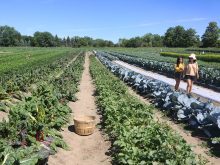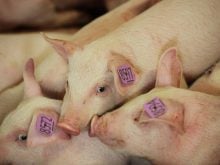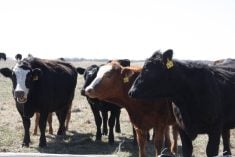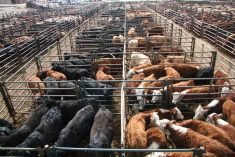LETHBRIDGE – Ken Getty knew he was taking a risk when he converted a former seed cleaning facility into a state-of-the-art pulse plant.
The southern Alberta grain merchant decided if local farmers had a modern processing plant nearby, they would be inclined to grow more peas, beans and lentils.
Located south of Lethbridge at Wilson Siding on Highway 4, L.A. Grain works with farmers growing lentils, peas, kabuli chickpeas and a variety of dry beans. Operating since 1997, it is southern Alberta’s only integrated processor capable of handling all categories of edible legume seed.
Read Also

VIDEO: Ag in Motion documentary launches second season
The second season of the the Western Producer’s documentary series about Ag in Motion launched Oct. 8.
The company has expanded every year, handling about 50,000 tonnes this year. It has the potential to do more, especially for food grade beans, lentils and chickpeas.
“We could continue to expand. We’ll shift with what the customer wants,” Getty said.
Most of the product is packaged in 100 pound bags and labelled with the client’s name for shipment all over the world.
Operating year round, L.A. Grain buys on behalf of Berdex Canada, Roy Legumex, Parrish and Heimbecker and Walker Seeds.
The producer brings in a sample that is graded on the spot. Then each buyer is called for the best quote of the day.
Once an agreement is reached, each product is cleaned, bagged and labelled according to customer specifications. Shipments go out by container or rail car mostly through the port of Vancouver.
The plant offers the newest in technological gadgetry for grading, sorting and packaging. It is also in the process of adopting the hazard analysis critical control points safety system throughout the operation because it is dealing with human food.
“It’s a sales tool. It’s an operational benefit to have standards,” Getty said.
When the plant was converted to a pulse facility, conveyors and cleaning equipment were added to provide gentle care for peas and beans. The seeds are somewhat softer than cereals and can be easily damaged as they move along conveyer belts and over screens.
“If they are handled roughly at all, they crack up, and the grade goes down with all of them,” said plant manager Jason Getty.
High tech equipment installed in the last year sorts peas and beans individually. Peas and beans travel down narrow chutes through a computerized system that checks and removes seeds that are discoloured, cracked or otherwise flawed. About 10 tonnes an hour are examined, resulting in a high grade product with no damaged seeds.
The company’s next initiative is encouraging farmers to try newer varieties.
“Guys who are growing these crops are pretty progressive and aggressive. They know what they are doing,” he said.
A new opportunity could be CDC Pintium beans that can survive dryland conditions.
“It’s a viable option for our area,” he said. Right now, local farmers are growing about 500 acres of Pintium beans.
Most of Alberta’s bean crops are grown on irrigated land while chickpeas, lentils and peas have survived well in dryland areas.
“Beans are one of the higher paying irrigated crops we grow,” said Alberta Agriculture pulse and grain researcher Ross MacKenzie.
Beans are heat loving crops that do best under irrigated conditions. While Manitoba successfully grows beans on dryland because of its better moisture and humidity, southern Alberta lives with higher elevations and a dry heat, so irrigation is critical to successful yields.
The beans also are risky due to nutrient deficiency, frost and diseases such as sclerotinia.
MacKenzie said Pintium beans have been discussed for years but more research is required before farmers take the risk. He agrees farmers need a drought-tolerant bean but he advises caution.
“The cost of seeds is very high so you can’t afford to have a wreck,” he said.
Saskatchewan surpasses all other provinces in pulse production but a study completed by Alberta Pulse Growers last year sees major potential for Alberta field peas, lentils and chickpeas.
In 2000, Saskatchewan production accounted for 73 percent of the peas, 96 percent of lentils and 93 percent of the chickpeas grown in Western Canada.
In 2001, the value of pulse processing in Alberta reached $84 million and the pulse commission sees plenty of expansion opportunities. A major advantage is lower freight rates to the port of Vancouver.
Canada is the world’s largest exporter of food grade peas, lentils and chickpeas. It supplies more than half the world’s lentil exports and 40 percent of global exports of dry peas, and is among the top five chickpea and bean exporting nations. The value of pulse production in Canada has risen to more than $1 billion annually.

















